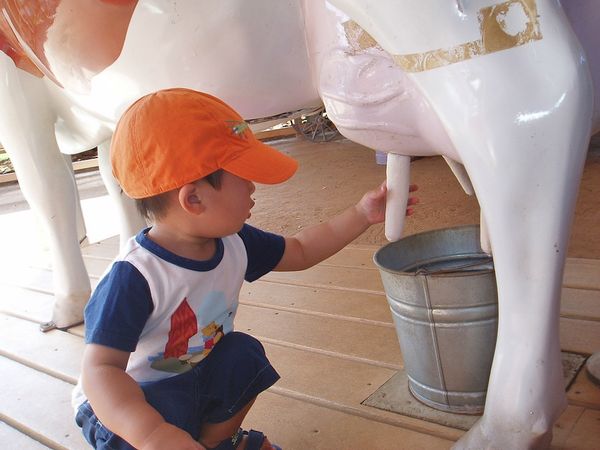Sometimes, it seems easier to avoid talking about scary subjects. It seems harmless to ignore the tragedies that happen in the world and this country every second, every minute, day, week, month and year. Most people shade their eyes, cover their ears and pretend they live in a perfect world. Among other things, this is unhealthy and delusional. It's time to talk about those scary subjects. It's time to inform our children of what is out there. It's time to open our hearts to those asking so desperately for help. It's time to stand up and speak out. Let's talk about an S-word. Suicide. This year, September is National Suicide Prevention Awareness Month.
Suicide. Even just sounding it out can sound threatening. Those seven letters are laced with so many negative ideas and feelings. Many people don't even utilize this word in their vocabulary. It's easier to pretend it doesn't exist; that it doesn't plague our country, nonetheless the world. Stop taking the easy way out.
Suicide can affect anyone, regardless of gender, age, sexuality, or background. For the sake of conciseness, I'm only going to highlight the troubles we face in America regarding suicide. I am not disregarding any other countries or downplaying how serious the suicide epidemic can be. I simply want to adjust the focal point so that my audience will realize the harsh circumstances surrounding them daily.
Suicide is the third leading cause of death among young people. In 2014, youth aged 15 to 24 had the third highest suicide rate of 11.6, according to the American Foundation for Suicide Prevention or AFSP. People ages 45 to 64 had a rate of 19.2, the second highest and ages 85 and up have a rate of 19.3, the highest rate of suicide in America. Each year, 45,773 people die of suicide in America and for every successful suicide, there are 25 attempts. There are 117 suicides per day. Females are more likely to attempt three times more, and three times more often, but males are four times more likely to die by suicide.
So why does it happen? Why do so many people die from such a preventable premise? Why are so many people, so many communities, and so many worlds completely shook up, damaged and changed by this horrific tragedy? An easy answer will tell us that it's our fault or society's fault. We don't talk about it enough, we stigmatize it too much, or we don't take action enough. While I could pull up statistics about each of those ideas and tell you that some reign true, it's not our fault. At the end of the day, we can't save everyone. Even in a perfect world where we educate people about the dangers of suicide, it would still exist. Depression still exists. Mental Illness would still exist. Death would still exist.
In an attempt to answer the question in one way, I've researched some reasons why people want to kill themselves. In a study completed by Psychology Today, a site that opens with the search bar 'Find a Therapist', and seeks to help the mentally ill by informing them of news and connecting them to the help they require, researchers studied several suicide notes and tried to deduct the reasoning behind each of them. Half of the notes they studied were authored by people who attempted, while the other half were successful completions. They found that each note seemed to be based on one of five ideas: senses of burden, emotional pain, escaping negativity, a change in the social world and hopelessness.
In the end, they found that the majority of the notes composed by people who succeeded, were based not on pain, but the sense of burden. Let's think about that. The majority of people in this study, who succeeded at committing suicide, decided to take their own lives because they truly believed that they were worthless, no one would miss them and their existence was nothing but a burden to others. If that doesn't scare the shit out of you, I don't know what will. There are people that work with us, that go to school with us, that walk beside us on the street, who honestly believe their existence is meaningless. If you think this idea is barbaric and absolutely impossible, you've been living with your eyes closed.
Millions of people, suicidal or not, either feel this way or have felt this way in the past ten years. That's terrifying. How do you convince someone that their existence isn't meaningless? They've already convinced themselves that there is no way out except suicide. How do you fix this? How do you fix them? How do you prevent such a terrible thing from happening?
This is why we need to discuss suicide. Many people don't know the answers to these questions. I know that I'm not quite sure either. I know that attempting to fix the problem listed above can be exhausting because it's like talking to a wall. Once someone is in that state of mind, that state of worthlessness, they are almost impossible to reconcile. So how does this end? Is suicide an endless cycle we will never escape?
Listen to me very carefully. The key to stopping the cycle, is literally, to start spreading awareness. That sounds kind of crazy right, especially since I said earlier that spreading awareness isn't going to save everyone, right? If you look at a problem, any problem that you have in this life, and think "Hm. I could take a measure or two or help some part of the problem. Or I could just do nothing instead because we're never going to fix everything," you are already a part of the problem. If everyone thought this way, we would have no advancements in modern medicine, especially concerning cancer. Think about that. If you can fix even just one aspect of a certain problem, and save some lives in the meantime, wouldn't you want to take that chance?
First things first, let's talk about why you don't want to talk about suicide. It's not just because you think it would be easier not to. It's not just because of fear. Another S-word we should mention here is stigma. There is a huge stigma with suicide, depression and mental illness in general. People refuse to talk about these things because it's unheard of. It's wrong. It's a secret. It's embarrassing. No matter what reason it is, that makes you cower when suicide is mentioned, you need to find a way to kill it with fire.
It's okay to be afraid of something. It's okay to be afraid of suicide and mental illness. What's not okay, is not talking about it or speaking up about your fears because you don't want to be judged, or you don't want people to see you discussing such a thing. Suicide happens every 40 seconds. It's real. It's more real than it's ever been. Suicide is treated like a disease, and while it is an epidemic, you won't catch it by speaking about it. Yet people hide behind the stigma because they're afraid of what may happen after discussing suicide. Sure, it's hard to talk about, but it's necessary. More necessary than it's ever been.
As Marisa Lancione of The Mighty reports, "There’s no easy way of talking about suicide because it’s hard to explain why someone would think killing themselves is a viable solution to their problems. As someone who has seriously thought about numerous ways to die, suicide is still hard to articulate. It’s a complex and confusing issue because it goes against one of our most basic instincts: self-preservation." She mentions that even though this fear can easily cloud your judgment, it shouldn't be something that stops you from opening your mouth.
What about your fear of being judged? Suicide and mental illness are discussed with a load of ignorance most of the time. People talk about which ways they would want to go out if the need should ever arise. They say people commit suicide for attention. They judge people for attempting and not succeeding and then turn around and judge the same people who succeeded. You can't win.
Mental illness is an illness, just like cancer, just like dementia, just like any other illness you'd be treated for in a conventional hospital. It should be treated as a regular illness. Just like those people who did not cause their own cancer, mentally ill people did not create their illness. This is where the stigma should slip away. Once you realize that mentally ill people are just as sick and stuck in their sickness as someone with a rare disease is, you'll realize that they shouldn't be treated any differently. Would you tell a cancer patient that their disease is a misconception they made up in their mind? Would you tell a person with Alzheimer's that they are just asking for attention and pretending to feel this way? No, you wouldn't. So you shouldn't say that to mentally ill people either.
What's next? Speaking up. Marisa from The Mighty talks about how to approach speaking about suicide. She says, "So it’s not that we shouldn’t talk about suicide because we’re afraid it’ll be contagious, but we need to know how to talk about it. We need to be sensitive to our audience. We need to be considerate of other people’s experiences. We need to be kind and understanding." Talking about suicide won't increase suicide. It won't make you suicidal. It won't make your children suicidal. Making adjustments to how we approach suicide and stigma relating to stigma, can only help the problem.
Every time I mention suicide or something related to it, I become very emotional. For those of you who read my articles regarding Emotional Triggers and Trigger Warnings, you know why I feel so deeply attached to this subject. I know it's scary to speak up about your personal experiences, but I also know that if I don't speak up, my trigger won't be doing anything but hurting me, when it could be put forth to help spread awareness. So here goes nothing.
I, like many other people in this world, have been personally affected by suicide. I have been there, where I felt there was no way to escape my pain and suffering except to end it all. Though I reached out to someone before actually acting on my feelings, I know that some aren't half as lucky, to realize the fault in their feelings like so. Growing up, I was that friend that people always went to when they felt hopeless, and like there was nothing left for them in this world. It was emotionally and physically exhausting to have to be at everyone's beck and call, just to make sure that they wouldn't kill themselves overnight because then I would be to blame. Most of my friendships regarding this type of relationship became toxic for me and ultimately ended up contributing to my triggers, which now mostly focus around the idea of suicide.
Looking back, there was never a time in which I did not have a friend who had either attempted or thought about attempting suicide. Out of all the people I have ever known, almost all of them have been plagued with these thoughts and ideas. It wasn't shocking to me in that moment because I thought that it was just the times. I thought, well, in these days, people are suicidal and depressed and that's life. Now that I'm in college, I only surround myself with positive people, so that I am not sucked into the black hole that suicide becomes for anyone and everyone who becomes involved with it. No matter how much distance I put between myself and it, suicide still affects me. It still plagues me, taking the form of a debilitating trigger.
I have lost people. I fear I may lose more. Even those I did not personally know still shake me up inside because I've been there. I've seen suicide at all the angles it can possibly manifest. It terrifies me. I do not think there will ever come a day when it does not terrify me. That will not stop me from talking about it. My fear will not stop me from spreading awareness and it certainly won't stop me from speaking up about it.
I, personally, fight for gun control often. Though I am tired of seeing the deaths at the hands of other people holding firearms, I am mostly fighting for gun control reform because of suicide. Firearms account for 50% of all suicides. I truly believe that gun control reform will help to decrease that statistic. Will it save everyone? No. Even if it just saves one life, I think that would be a success.
Suicide is a tough subject. Like I've mentioned, it can be hard to approach, and hard to help. Prevention is possible. If we all work together, and realize that this is a disease much like many others, it will be a step in the right direction.
If you know someone who is dealing with some struggles of suicide, whether it be them personally, or them dealing with the loss of a friend, the best thing you can do, at first, is be there for them. There are not many ways you can fix this problem. As Marisa Lancione states in her article from earlier, "Other than being there for them, listening to them and giving them a hug if they want it, there’s no real way to console a friend or family member who is dealing with this type of loss."
If the problem exceeds your expertise, encourage the person to call a helpline to talk. These helplines will be located at the bottom of this article. If you are the person dealing with these issues, there are helplines and online chats filled with people willing to listen and help you with your feelings. You can survive this.
In general and in lower circuits, you can help to prevent suicide by creating safe spaces. In high school, a friend of mine and I created a Facebook group where people could vent about their problems and seek help and advice from others in the school with zero judgment. If you're going to create this type of group, make sure to fill it with positive people, and if a problem persists, like a person being rude or uncalled for, you must delete them and block them from the group. I've seen several other schools do this and have the group run as an efficient safe space for teens to voice their struggles.
In higher circuits, you can donate your time and money to organizations such as The American Foundation for Suicide Prevention, National Alliance of Mental Illness, Yellow Ribbon, or several other organizations listed here and here.
At the end of the day, we need to all stand together to help prevent suicide. It's time to speak up, reach out, and stand tall. Tell people your story. Talk to your children. Talk to your friends and family. We can take steps forward, together. You are never alone.
Call the National Suicide Prevention Lifeline: 1-800-273-8255
Text the Crisis Text Line by texting “START” to 741-741
Receive online help instantly via Live Chat
Also, head here for a list of Crisis Centers around the world.





















